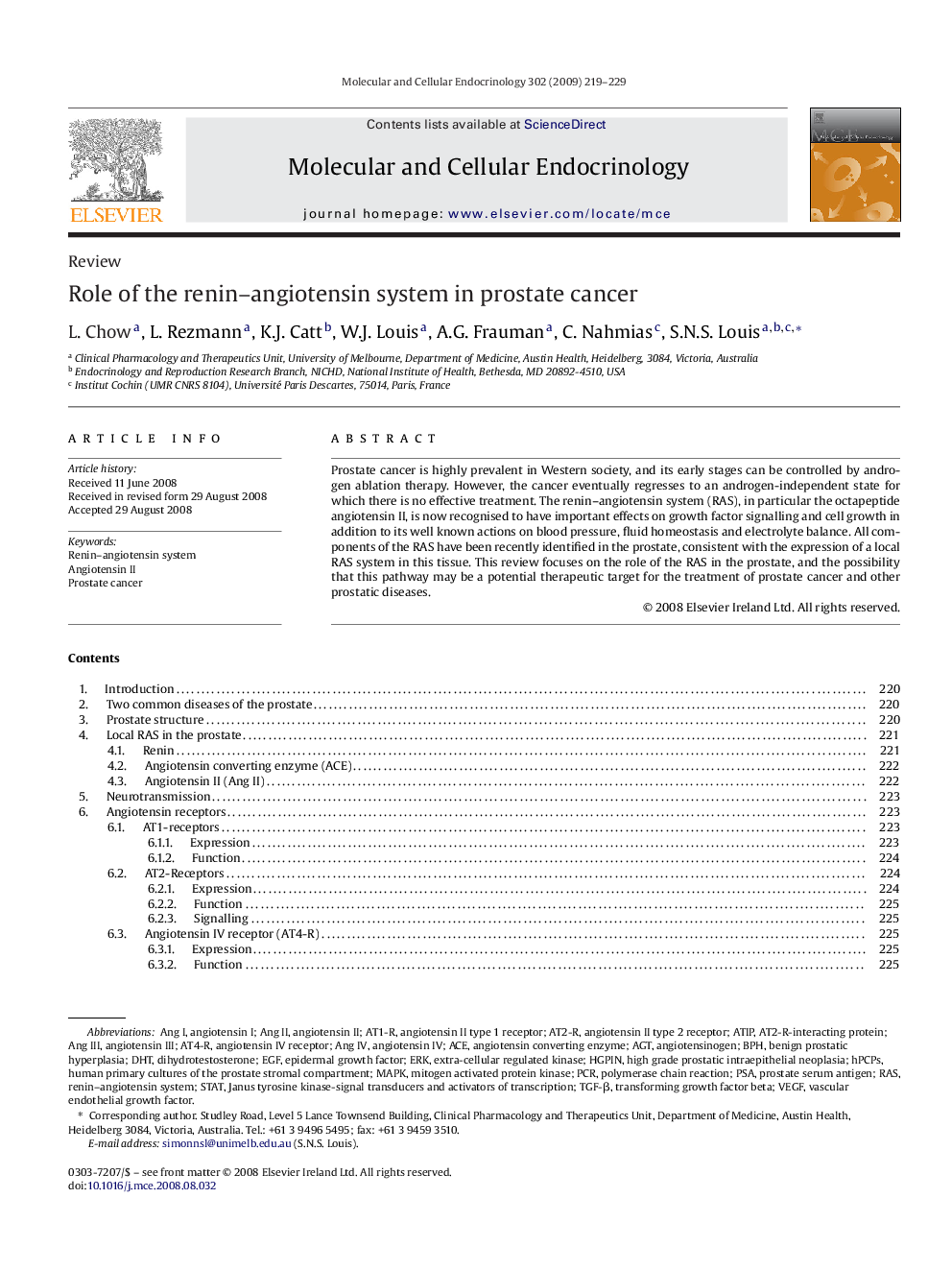| Article ID | Journal | Published Year | Pages | File Type |
|---|---|---|---|---|
| 2197222 | Molecular and Cellular Endocrinology | 2009 | 11 Pages |
Prostate cancer is highly prevalent in Western society, and its early stages can be controlled by androgen ablation therapy. However, the cancer eventually regresses to an androgen-independent state for which there is no effective treatment. The renin–angiotensin system (RAS), in particular the octapeptide angiotensin II, is now recognised to have important effects on growth factor signalling and cell growth in addition to its well known actions on blood pressure, fluid homeostasis and electrolyte balance. All components of the RAS have been recently identified in the prostate, consistent with the expression of a local RAS system in this tissue. This review focuses on the role of the RAS in the prostate, and the possibility that this pathway may be a potential therapeutic target for the treatment of prostate cancer and other prostatic diseases.
